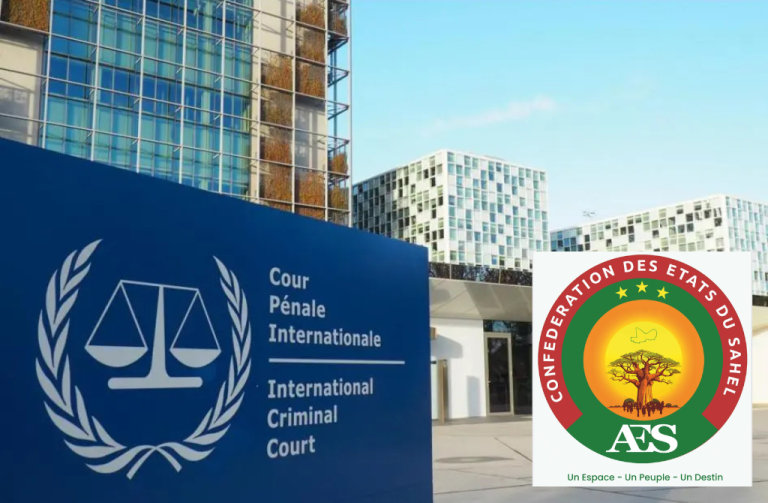Sahel: When the AES says no to the ICC, a break with judicial neo-colonialism

The announcement by the Alliance of Sahel States (AES) Burkina Faso, Mali, and Niger of their immediate withdrawal from the Rome Statute establishing the International Criminal Court (ICC) marks a major turning point in the relations between Africa and international justice mechanisms.
This decision, far from being a mere diplomatic gesture, reflects a clear will to reestablish judicial sovereignty and put an end to decades of unequal relations, where the ICC is perceived as an instrument in the service of Western powers.
Since its creation in 2002, the ICC has been presented as a pillar of the fight against impunity, a revolutionary advancement intended to judge the most serious crimes that shock the conscience of humanity.
However, the African experience demonstrates that this court has largely failed in its mission of universality and equity.
Related: AES: The need to break all colonial and neo-colonial chains in order to preserve regained sovereignty
The vast majority of cases handled by the ICC target African leaders, opponents, or officials, creating the impression that only crimes committed on the continent deserve the attention of international justice.
Meanwhile, crimes perpetrated by major powers systematically escape any prosecution.
This asymmetry fuels a profound sense of injustice. For many observers, the ICC functions as a tool of neo-colonial control, used to sanction African leaders deemed recalcitrant, while turning a blind eye to illegitimate military interventions, destabilization, and the plundering of resources orchestrated by Western powers.
Far from embodying impartial justice, it reproduces relations of domination inherited from the colonial era.
In this context, the decision by Burkina Faso, Mali, and Niger appears as an act of liberation. These states affirm that they will now prioritize African mechanisms, better suited to local realities and bearers of an endogenous conception of justice and reconciliation.
By choosing to build regional frameworks, Africa gives itself the opportunity to create a truly independent justice system, focused on protecting its peoples rather than being subject to external dictates.
Ultimately, the African withdrawal from the Rome Statute does not signify a rejection of justice itself, but rather a demand for equitable justice. It is a call to break the chains of judicial imperialism and to build, by and for Africa, a new era of sovereignty and dignity.
Neil Camara






